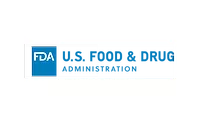Canada Takes Steps to Modernize Its Food Safety System
Source: Mondaq.com (edited for style)
Significant change is on the horizon for the food industry [in Canada]. In June, the Canadian Food Inspection Agency (CFIA) held a Healthy and Safe Food Regulatory Forum in Gatineau, Quebec to discuss the proposed regulations under the Safe Food for Canadians Act (SFCA) and associated initiatives. This meeting coincides with multiple consultations on food safety modernization (available at CFIA's Consultations Page)
|
Consultation |
Comment Period Ends |
|
A New Regulatory Framework for Federal Food Inspection: Overview of Proposed Regulations |
August 29, 2014 |
|
CFIA Guidance Documents: Supporting Compliance with the Proposed Safe Food for Canadians Regulations |
October 31, 2014 |
|
Use of Private Certification to Inform Regulatory Risk-Based Oversight |
August 29, 2014 |
|
Incorporation by Reference |
August 29, 2014 |
|
September 30, 2014 |
|
|
Foreign Food Safety Systems Recognition: Proposed Framework |
August 29, 2014 |
|
Draft Compliance, Control and Enforcement Framework |
October 31, 2014 |
|
Draft Compliance Promotion Strategy |
October 31, 2014 |
|
Enhancing Risk Analysis: A more systematic and consistent approach |
October 31, 2014 |
New details are emerging on several elements of CFIA's transformation agenda, especially with a first draft of the proposed regulations being made available. Highlights from the Forum discussions and documentation include:
- Everyone who imports food or prepares food for interprovincial or export trade will be required to apply for a licence from CFIA. The licence is valid for two years and renewable at the end of the period. The estimated cost of a licence is currently $250. Organizations will have the flexibility to determine if they want one or multiple licences to cover their operations. Multiple licences will increase the cost associated with licensing, however holding separate licenses for different establishments, activities or food commodities will permit an organization to tailor their preventative control plan (PCP) for the activities conducted under each licence and may, to some extent, minimize risk. This is especially important given the limited recourse for a licence suspension provided for by the proposed regulations.
- Warehouses and distribution services will not be required to get a licence at this time, but they must only deal with products from licensed suppliers. The CFIA will also be monitoring this potential limitation in the food safety system and may re-evaluate their position on warehouses and distributers.
- The proposed regulations include stiff provisions that may restrict an organization's ability to obtain or renew a licence. For example, a licence can be refused if any officer or director of a corporation has been convicted of any offence under the SFCA or the Food and Drugs Act (FDA) or had a licence suspended or cancelled in the past five years.
- The Minister has very broad powers to suspend a food licence where there is any non-compliance with the SFCA, the FDA or the associated regulations, fees payable in respect of the licence, or any risk of injury to human health. This proposed provisions are less forgiving than the Natural Health Products Regulations.
- A regulatory appeals procedure is not included in the regulations at this time. While there is some indication that one will be proposed, it will likely not occur for some time. In the interim, industry must rely on CFIA guidance, which is not legally binding.
- With certain limited exceptions, all licence holders must have a PCP in place. The CFIA has indicated that sample PCPs will be made available, however a facility's PCP will not be reviewed by the CFIA until the first time the facility is inspected. This means that organizations will not be aware if there PCP is adequate until an inspection takes place. It is not clear what kind of opportunity organizations will have to work with the CFIA to update their PCP and bring it into compliance with CFIA expectations.
- An establishment's risk is determined by: 1) initial risk (e.g. type of product, volume); 2) mitigating factors (e.g. PCP); and 3) establishment track record. As elements 2 and 3 cannot be known until an inspection has taken place, a facility's first contact with CFIA and the imposition of a sampling program will depend on the initial risk based on factors such as the food commodity. It is not clear if and how industry will be able to play a role in determining the initial risk level or engage in a dialogue with CFIA about their position.
- The intent is to have a more uniform inspection process, regardless of food commodity, i.e. a process based on similar principles, uniform training and common inspection tools. CFIA indicated that there will be four levels of inspectors, supported by a center of excellence.
- The center of excellence will be developed to centralize decisions regarding interpretation of legislation, guidance and PCPs in an effort to create more consistency. The outcome-based approach to the food-safety system creates more flexibility for industry, but also provides inspectors with greater discretion compared to a prescriptive approach. It is not clear if industry will be able to provide input to the center of excellence and discuss their interpretation decisions to ensure a transparent and consistent approach.
- The labelling modernization initiative is continuing in tandem with the inspection modernization efforts under the SCFA. Changes with respect to both food labelling requirements and the compositional standards of identity in the FDR are being considered. A variety of changes are anticipated, but CFIA and Health Canada have indicated that they understand the cost associated with label changes and will take this into account. This will almost certainly be accomplished by consolidating all of the label changes and providing a reasonable transition period.
- Incorporation by reference is being considered as an important tool for both the new SCFA regulations and for food labelling modernization in the FDR. Incorporation by reference permits more rapid changes of what are now defined criteria to keep pace with changes in knowledge and technology. Use of incorporation by reference needs to account for adequate notice of changes to be provided to stakeholders during both the consideration and implementation phases. This is more difficult to address where the incorporated documents are external to the government, but notice must be provided to the extent possible. Analysis needs to be done regarding what will constitute adequate time for notice and comment.
The CFIA has invited stakeholders to provide input on these proposed changes prior to finalizing any guidance documents or the publication of regulatory proposals in the Canada Gazette Part I.
Looking for quick answers on food safety topics?
Try Ask FSM, our new smart AI search tool.
Ask FSM →








